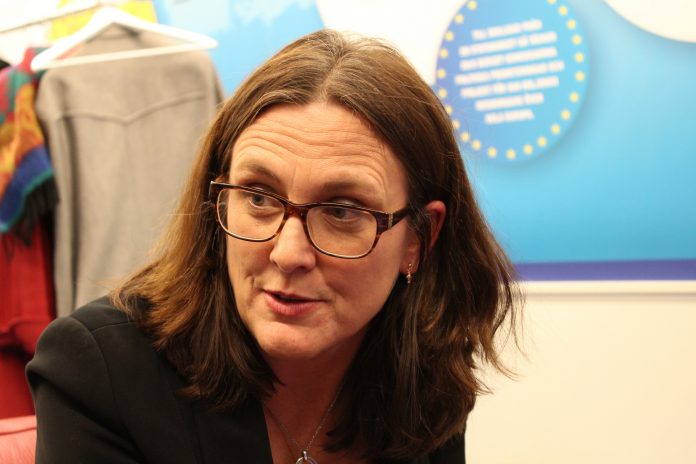On Wednesday the Commission released a detailed overview of the foreign direct investment situation in the EU.
The report is the first of its kind in terms of the detailed company level data used. It confirms a continuous rise in foreign company ownership in key sectors in the EU and an increase in investments from emerging economies, such as China. It illustrates the need for effective implementation of the freshly adopted EU investment screening framework.
As part of its proposal on the screening of foreign direct investments into the European Union presented in September 2017, the Commission committed to carry out a detailed analysis of these investments.
“This report provides a comprehensive overview of investment into the EU and reveals some important trends that we need to consider carefully. Europe benefits a lot from an open investment policy but we must be ready to act where our security and public interest are at risk. Together with the new framework on the screening of foreign direct investments we are now better equipped and better informed to deal with these types of scenarios in the future,” said EU Commissioner for Trade Cecilia Malmström.
With more than 35% of total EU assets belonging to foreign-owned companies, the EU has clearly one of the world’s most open investment regimes. Foreign direct investment stocks held by investors from outside the EU amounted to €6,295 billion at the end of 2017 providing Europeans with 16 million direct jobs.
“Europe benefits a lot from an open investment policy but we must be ready to act where our security and public interest are at risk” commissioner Cecilia Malmström
While traditional investors such as US, Canada, Switzerland, Norway, Japan, and Australia remain by far the top investors, accounting for 80 percent of all foreign-owned assets across all sectors of the EU economy, the report notes also some important trends:
Foreign ownership of EU companies has been on rise in the last 10 years;
Investment by state-owned enterprises has grown rapidly over the last years. Such companies from China, Russia and the United Arab Emirates have performed three times more acquisitions in the EU in 2017 than in 2007;
Foreign ownership is high in some key sectors such as oil refining, pharmaceuticals, electronic and optical products, and electrical equipment;
There has been a surge in investments from emerging economies, notably China, for aircraft manufacturing and specialised machinery, and India, for pharmaceuticals;
“Offshore investors” control 11% of foreign-owned EU companies and 4% of all foreign-owned assets in the EU. Their presence is growing.
The report also provides a detailed overview of the origin of foreign investments, sectoral and geographical distribution and characteristics of foreign-owned companies in the EU. Based on that information, the Commission will continue monitoring EU-wide investment trends, contributing to the implementation of the new EU foreign investment screening framework.
The proposal to create the first EU-wide framework to screen foreign direct investments was presented by President Jean-Claude Juncker during the 2017 State of the Union address. Following the approval by Member States in the Council on 5 March and the positive vote by the European Parliament on 14 February, the new EU legislation establishing an EU-wide investment screening framework is now set to enter into force in April. Member States and the Commission will subsequently have 18 months to put in place the necessary arrangements for the application of this new mechanism. Preparations are already ongoing including a regular exchange of information and best practices with the Member States in the dedicated expert group established in 2017.

